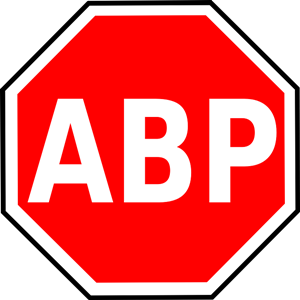The Best Extensions to Block Ads in Chrome – September 2019

So, you can’t stand those pesky ads that keep appearing just before you start watching a video or when you access a particular website. No one can blame you, really. Nobody likes them. Although many websites use ads as the main source of revenue, blocking them using a legitimate piece of software is absolutely fair game. There are many ad blockers out there that can do the job and it’s up to you to find the right one.
Here are the best ad-blocking extensions for Chrome.
AdBlock
By far one of the most popular extensions for Chrome – as well as Safari – AdBlock obviously does a fantastic job here. It’s very simple to use and works with the majority of websites. When you add this extension to your browser, you’ll notice that AdBlock works automatically. It will block ads on YouTube videos, as well as on static pages. However, AdBlock does even more than this. You can use it to set up site and ad whitelists, which essentially allows you to filter the ad content that you see.

You can even use this extension to remove certain intrusive aspects of a webpage. AdBlock can help you whisk away social networking links and other web items that may or may not be malware in disguise. However, AdBlock is a part of the “Acceptable Ads” campaign that allows certain ads through. Another issue here is that it may fail to block some YouTube ads, which can be very underwhelming. All in all, though, AdBlock is one of the most popular extensions of its type for a reason – it is very effective.
AdBlock Plus
Not to be confused with AdBlock, AdBlock Plus has been around for quite a while now. Make no mistake, though, it is still very popular. When it comes to pre-roll ads, popups, social networking ads, and many others, AdBlock Plus does a terrific job. Its filter list and interface are very user-friendly and easy to get around. Therefore, filtering which ads you want to block and which ones you’d like to let through has never been easier.

AdBlock Plus lets the user set whitelists for favorite websites, so that they still display ads. There have been some controversies about the company behind AdBlock Plus allowing certain ads to go through and they have never really denied this. That being said, AdBlock Plus is a legitimately great extension that does its job extremely well. Well, at least until a large organization pays them not to, that is. For the most part, however, this extension is more than acceptable and won’t compromise your browsing experience.
AdGuard
The one thing most ad blockers constantly fail at is blocking popups. In fact, some ad blockers will falsely tell you that they’ve blocked a popup and display it anyway. Well, AdGuard is designed to tackle this exact problem. One of the main perks that this extension brings to the table is keeping a watchful eye on popup ads, as well as pop-under ads.
AdGuard is lightweight and helps you prevent malware infestations that some popup ads hide. However, this is not where it stops. AdGuard can actually reduce the bandwidth of your connection and help speed up your entire browsing experience. The extension does this by blocking ads, as they make a lot of clutter that tends to choke your connection speed.
Although some have reported too many notifications advertising the premium version of AdGuard, this extension is brilliant and it also boasts a variety of positive reviews.
uBlock Origin
Most ad blockers are free. Some have premium versions that bring more features to the table. uBlock Origin, however, is not only completely free, but it’s also open-source. This can be an interesting factor that might make many tech-savvy people stick with this one. One of the things that set uBlock Origin apart from its peers is that it is minimally taxing in terms of system resources while remaining super-efficient.
It works similarly to other ad blocker extensions, but the ability to leverage surveys regarding required resources for particular pages is what really sets it apart from similar apps. uBlock is very good at blocking pop-under ads. It is also capable of whitelisting websites. This is incredibly simple and straightforward to do – all you need to do is press the power button in the extension. The extension also features detailed stats so that you know how efficient it is.
Ghostery
This extension isn’t an ad blocker, per se. It is actually a tool for blocking web trackers, though it can also prevent various analytics tools from gathering your info. Of course, it comes with a built-in ad blocker feature which is particularly effective. While not being a purebred ad-blocking app, Ghostery is more of an app you can use to boost your browsing experience in general.
Ghostery can show you an in-detail review of every page you visit and tell you what trackers, analytics tools, and ads it uses. This allows you to select exactly what you want to block. The only real downside to this extension is that it takes some time to set it up properly to your preferences. Of course, this isn’t a deal-breaker, as most Ghostery users actually want these options at their disposal.
What to Choose?
In reality, all of the mentioned extensions are good options. This goes to say that you should probably give them all a go and see which one works for you the best. Bear in mind that where some are simple, others are more complex and for a good reason.
What’s your favorite ad block extension? Have you switched between extensions before? The comment section is open for discussion, so feel free to tell your story.
















